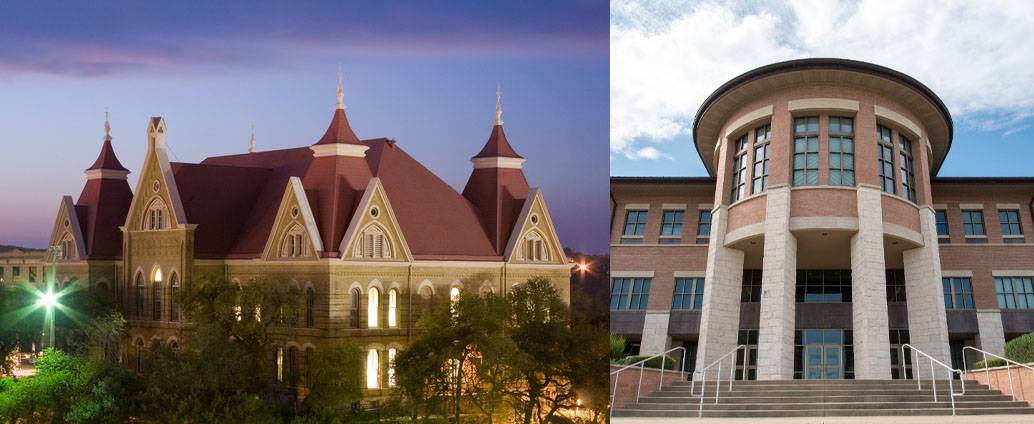
Early Childhood and Care 0-8 years and BA of Behavioural Science
Fremantle Campus, Australia
Overview
Why study this degree?
- If you are interested in the care and education of young children, this nationally recognised double degree is a perfect choice. The Bachelor of Education (Early Childhood & Care 0-8 years)/Bachelor of Behavioural Science degree will equip you with the knowledge and skills to advance your education career.
- The Bachelor of Behavioural Science component will provide opportunities to work with marginalised children or adults. Notre Dame University Australia graduates are in high demand in the early childhood workplace.
- The Bachelor of Education (Early Childhood & Care 0-8 years) degree combines educational theory and classroom learning with an integral practical component. At the same time, the Bachelor of Behavioural Science degree will develop your specialised knowledge and academic standing.
- When you study at Notre Dame University Australia, you will be inspired by our innovative approach to teaching and learning with the latest in learning technologies. Our double degree will provide you with the academic skills you need to support, engage, and extend primary-aged children by integrating theory and practice.
- The Education component covers traditional subjects such as English, Mathematics, and Humanities courses in Play and Pedagogy. In addition, you will carry out the essential practical component of 32 weeks in various childcare and classroom settings. A unique feature is that this practicum experience counts towards your degree.
- The Bachelor of Behavioural Science component will allow you to study critical psychology, political science, cultural studies, and sociology. Behavioural sciences forge connections between traditional psychology and social work while promoting respect for social and cultural diversity. Get in touch today to enrol.
- Please note: Education students in Western Australia must pass the national Literacy and Numeracy Test for Initial Teacher Education Students (LANTITE). The test is administered externally by the Australian Council for Educational Research (ACER). You must register and pay for the test.
Upon successful completion of the Bachelor of Education (Early Childhood & Care 0-8 years) graduates will be able to:
- Synthesise knowledge of current research and theoretical perspectives of early years education
- Synthesise knowledge of relevant and current perspectives on child development for the emotional, personal, social, language, cognitive, spiritual, creative, and cultural domains in order to make planning, teaching and assessment responsive to the needs of the child
- Demonstrate the required knowledge of curriculum and policy frameworks and their application across early years’ contexts
- Critically reflected on international perspectives and contemporary issues in early childhood
- Demonstrate effective communication and collaborative skills in a variety of early years’ contexts
- Demonstrate competence in planning and implementing teaching and learning engagements for children from diverse backgrounds and of ranging abilities, based on sound understandings of early years’ pedagogy drawn from research and theory
- Apply professional and practice knowledge and skills to plan, teach, assess, and evaluate programs that establish a strong foundation for children’s well-being and future success
- Utilise skills for engaging appropriate and effective partnerships with families, communities, organisations, and other professionals
- Develop dispositions for continued learning in evolving teaching contexts including the development of skills in inquiry, self-reflection, and advocacy
Upon successful completion of the Bachelor of Behavioural Science graduates will be able to:
- Identify and evaluate evidence-based resources and information
- Differentiate between individual, group/organisational, and societal level factors that influence human behaviour;
- Analyse the complex nature of these influences to promote social and emotional wellbeing
- Analyse the socially constructed nature of knowledge, culture, and values and the role these factors play in shaping society
- Relate appropriate theoretical frameworks and models to specific social issues to achieve transformative practice;
- Communicate arguments and/or ideas in a range of forms and forums
- Work independently and in collaboration with others
- Engage in critical reflexivity as a mechanism for understanding oneself in relation to society; and
- Promote social justice as empowerment and liberation through respect for cultural diversity and reflexive ethical practice.
Similar Programmes

Elementary Education (4-8 Certifications) (MEd)
Texas State University, San Marcos, United States
Earliest Intake
September 2024
Gross Tuition
16380 $

Community Education BA (Hons)
University of Dundee, Dundee, United Kingdom
Earliest Intake
July 2025
Gross Tuition
22500 £

Early Childhood and Care 0-8 years / BA of Science
University of Notre Dame, City of Perth, Australia
Earliest Intake
October 2024
Gross Tuition
37679 A$

Master of Primary Teaching
University of Notre Dame, Chippendale, Australia
Earliest Intake
January 2025
Gross Tuition
34414 A$

Master of Secondary Teaching
University of Notre Dame, Chippendale, Australia
Earliest Intake
January 2024
Gross Tuition
34414 A$
